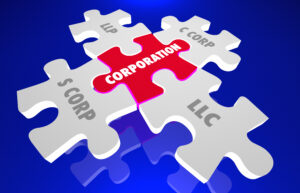What Should You Do if You Can’t Afford to Pay Back-Taxes?
Paying taxes is no fun. Owing back taxes and not being able to pay them is much worse. Many people get into tax trouble when they end up owing money to the IRS and they don’t have the means to pay it off. This can cause a lot of stress, anxiety and even fear or panic. However, you shouldn’t panic. The IRS won’t show up at your door with the police ready to take you away in handcuffs.
If you do end up owing back taxes and you can’t pay them off all at once, you have some options. That’s because the IRS is willing to work with you, so long as you are willing to work with them. The first thing you should do, is file your return on time, even if you know you don’t have the money to pay off your tax debt. This will help you avoid additional late-filing penalties.
Pay as much as you possibly can when you file your return. If you just need a little more time then you can file for a short-term extension in order to pay off the remaining debt within 120 days. If it is going to take longer, then apply for a monthly payment plan with the IRS. It’s best to set up an automatic monthly payment plan. There will likely still be interest and some penalties but they will be much lighter.
The IRS wants you to be able to pay your taxes and they are willing to work with you if you keep up your end of the agreement. You can learn more about paying off back taxes by clicking here.
Tax S-corporation
Saving Taxes with an S Corporation An S corporation election allows the shareholders to preserve the benefit of limited liability for the corporate form while at the same time being treated as partners for federal income tax purposes. Ever wondered why so many small businesses operate as an S corporation? Simple. An S corporation saves…
Sec1045 Partnerships
Sec1045 Partnerships This document contains final regulations relating to the application of section 1045 of the Internal Revenue Code (Code) to partnerships and their partners. These regulations provide rules regarding the deferral of gain on a partnership’s sale of qualified small business stock (QSB stock) and a partner’s sale of QSB stock distributed by a…
Sec179 Businessequipment
Updated: 11/12/10 Most new business equipment can be either depreciated over its useful life or expensed immediately under Internal Revenue Code Section 179. The maximum deduction is based on the following schedule for the date in which the tax year begins. Each 1040, whether Single or Joint, is limited to one maximum. 179 expenses passed…
Sec1244 Small Business Stock Sales
Sec1244 Small Business Stock Sales Section 1244 of the Internal Revenue Code, the small business stock provision, was enacted to allow shareholders of domestic small business corporations to deduct as ordinary losses, losses sustained when they dispose of their small business stock. In order to receive this beneficial treatment, the Code prescribes specific requirements for:…



